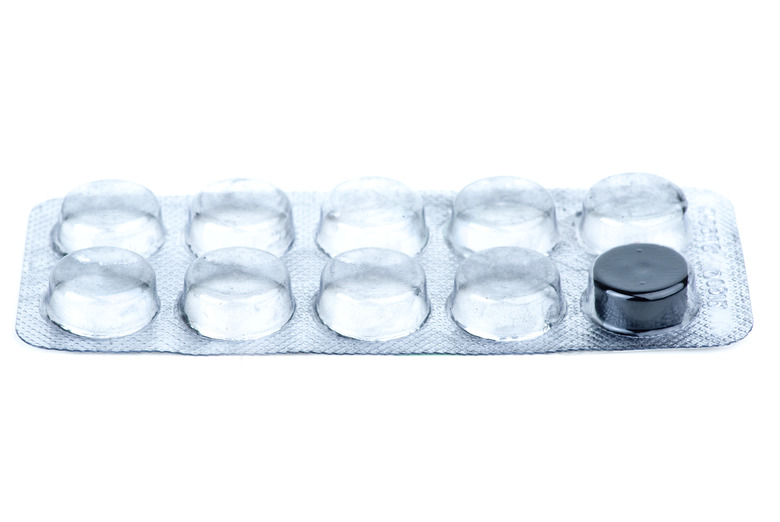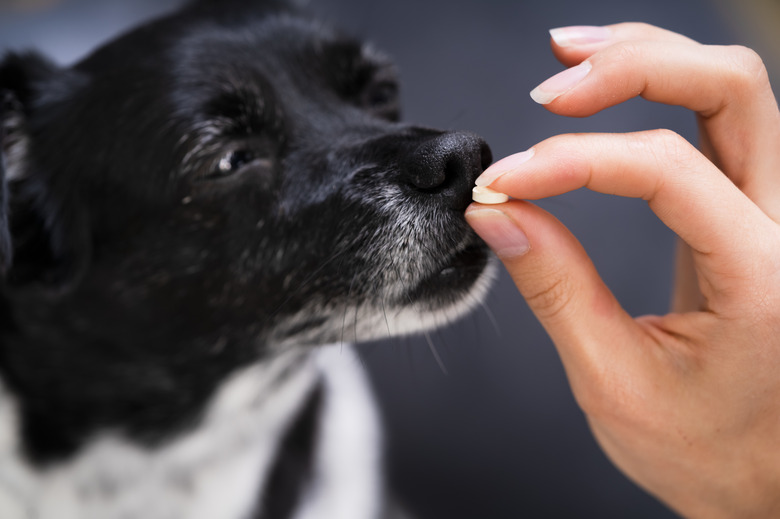Can I Give My Dog Charcoal Tablets?
Charcoal tablets for dogs may be given temporarily for a number of issues. However, dogs should only be given activated charcoal under the supervision of a veterinarian. Activated charcoal is used to treat gas and bad breath in dogs and can also treat poisoning. Even though it is generally safe when used by a veterinarian and is sold over the counter at many pet stores, do not diagnose and treat your dog independently of veterinarian advice because activated charcoal can cause serious adverse reactions, including fatal respiratory obstructions.
How does activated charcoal work?
How does activated charcoal work?
Activated charcoal (sold in powder, granular, and liquid forms) is used in humans and animals to treat poisonings and overdoses because it binds to the poison and prevents its absorption by the body. This is particularly good in the case of a dog who eats chocolate — which can be deadly for dogs in some cases — because the activated charcoal absorbs theobromine and caffeine, the main toxins in chocolate. Dogs cannot metabolize theobromine or caffeine like humans can and are therefore highly sensitive to the effects. Signs of chocolate poisoning include increased heart rate, diarrhea, vomiting, increased thirst, excessive urination, and panting.
Giving a dog activated charcoal has become the primary treatment for poisonings because it is so effective. However, it is so effective because it is so powerful, and it therefore needs to be handled responsibly. Additionally, for some poisonings (mineral acid, alkali, alcohols, iron salts), it is ineffective and can actually make the situation worse.
Giving a dog activated charcoal
Giving a dog activated charcoal
The most common at-home use of activated charcoal is to cure gas and bad breath in dogs. As these are not life-threatening conditions, hold off on treating your pet until you are able to consult with a veterinarian. Activated charcoal can also remove toxins in the case of poisoning, including ingestion of caffeine or chocolate, both of which can be dangerous for canines.
Many books and websites will recommend activated charcoal as first aid in the event of poisoning, but this method of detoxification works best when administered by an experienced professional. There are important follow-up steps to be taken by a professional immediately after administration, which may include an IV and/or a urinary catheter. If you suspect your dog has been poisoned, immediately seek emergency veterinary care.
What are the side effects?
What are the side effects?
Activated charcoal for dogs is relatively safe when prescribed by a vet, but it can have side effects for some pets. If an animal is hypersensitive or allergic to activated charcoal, ingestion could potentially be fatal. Aspiration of activated charcoal may cause respiratory obstruction and potentially fatal bronchiolitis (inflammation of the smallest air passages in the lungs, which can lead to asthma). Therefore, activated charcoal should not be used in situations where the animal is unable to protect his airway (for example, if he has reduced consciousness).
Other risks include vomiting, constipation or diarrhea, poor nutrient absorption, and dehydration. Beware that a dog's stool could be black temporarily while the dog is on charcoal — this is normal, but if it lasts more than a few days, contact your veterinarian for advice. Sometimes sorbitol — a sugar substitute often found in candy and chewing gum — is added to activated charcoal to increase movement through the GI tract. While this substance is not ideal, it can help somewhat in poisoning cases. Generally speaking, sorbitol isn't great for dogs, but it is not highly toxic.
Activated charcoal for dogs can be found at many retailers, but it's best to get it from your vet after a consultation. Charcoal is also an ingredient in dog shampoo that can provide itch relief and may even remove skunk odor.


